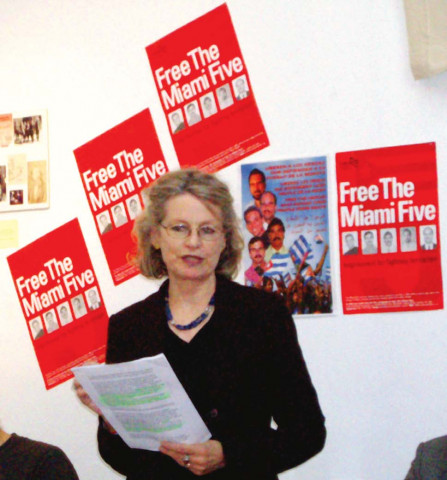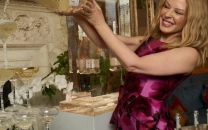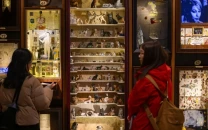Waiting for justice
After the sold-out performances at its premiere earlier in March 2010, Waiting returned for a last performance.

Western society underwent a transformation the day reality television was born. The question is whether society had already changed and so, by the economic laws of supply and demand, brought about the occurrence or if the television networks changed society by introducing voyeuristic programming.
Whatever the case, we now view “reality” differently. “Reality” is the new escapism. We relish the details of people’s lives in stark, gory detail and nothing else will suffice anymore. Documentaries have had a renaissance in this new thirst for the “real”. In this socio-cultural landscape, there are openings for new forms to emerge both on screen and in theatre. Waiting, is a new media production that incorporates video projections, operatic vocalising and a form of acting that is closer in relation to the art of the “docu-drama”. Victoria Brittain who is a former associate foreign editor of the Guardian, a patron of the Palestine Solidarity Campaign, on the editorial board of Race and Class, and on the national executive council of Respect Renewal is the author behind the work.
Her reputation in some factions, mostly right-wingers, of the Western media is mottled, and she has been accused of being a supporter of all causes and people that are viewed to be enemies, as it were, of the Western state. One opening line of an article on an American blog reads, “Victoria Brittain has never met a terrorist, jihadist, or enemy of a liberal and multicultural society that she doesn’t admire”. In Waiting, she has assiduously gathered the stories of the wives, sisters and daughters of men who have been victims of the war on terror, after entering the UK as asylum seekers. The stories are diverse, ranging from a French-Algerian Muslim wife of a man who was kept in UK prisons year after year without trial, to a Jordanian-Muslim who, by way of Pakistan, ended up in the UK only to have her husband picked up and bundled off to Guantanamo Bay leaving her to care for five children, to an elderly English lady who started writing to Muslim detainees in a number of British jails and fell in love with one of them this way.
Each story is told by the actresses playing the women in a warm, intimate setting sitting on an armchair or at a table, with lamps illuminating their faces in the same way one would have a heart-to-heart with a friend. This personalises the stories that are interspersed with both a female soprano and mezzo-soprano accompanied by a cellist whose voices echo the emotional tone of the content of the stories. The effect is magnetic and highly engaging. Video is projected from time to time to complement a story, and the proportion of each element making up the show is perfectly in tune with the highly-charged, sensitive content of the performances.
There is a both a minimal and raw feeling to the musical accompaniment that sets off the heart-rending tales we hear from the five women. Certainly, the operatic women’s voices mirror the emotion that the audience feels for the struggles of these women.
Waiting is a commentary on many issues. It makes us face the effects of the fallout of 9/11 and 7/7 on Muslims everywhere, but also throws a light on the UK justice system. It lends a fresh perspective to the war on terror, showing us how it continues to disrupt not just the lives of individuals but whole families and communities, who continue to wait and wait for their husbands, brothers and fathers to just come home, often not knowing where they are or why they have been taken. In the words of one woman, “I have to wait…yes waiting…one-and-a-half years waiting…waiting for the phone to ring.”
Published in The Express Tribune, November 7th, 2010.



















COMMENTS
Comments are moderated and generally will be posted if they are on-topic and not abusive.
For more information, please see our Comments FAQ